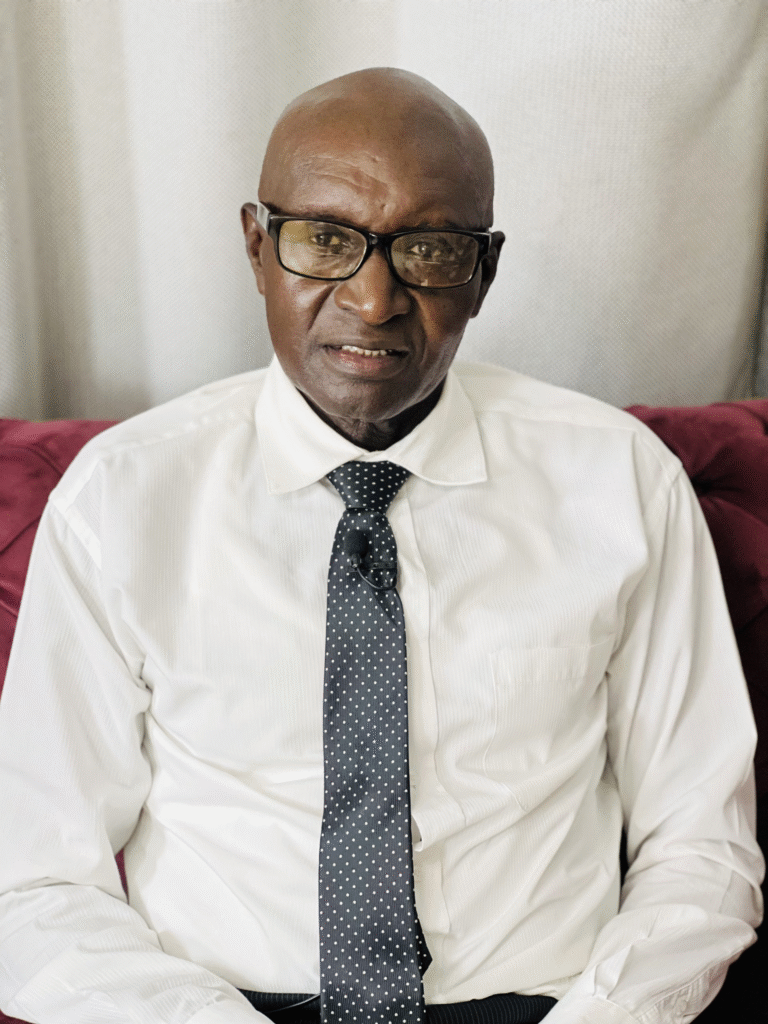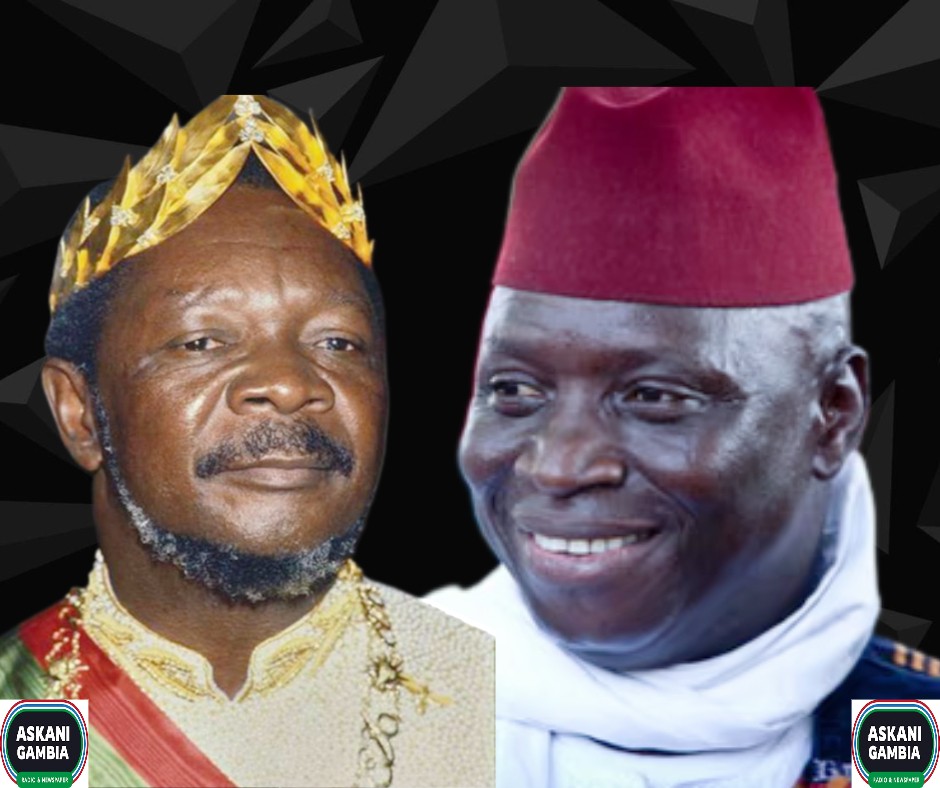
When Jean-Bédel Bokassa, the self-crowned Emperor of the Central African Empire, landed in Bangui in 1986 after nearly a decade in gilded exile, he returned not to the throne he once adorned with diamond-studded arrogance, but to a courtroom. His empire had crumbled, his marble crown long turned to dust. Yet what drew him home, against all reason, was not courage, but fatigue. The same exhaustion that haunts the exiled strongman when exile no longer feels like refuge, only slow death in disguise.
Fast forward nearly four decades later, and the ghost of Bokassa seems to be stirring again, this time in Yahya Abdul-Aziz Jemus Junkung Jammeh, the self-styled savior of The Gambia, who now vows to return from Equatorial Guinea in November 2025, after nine long years in forced seclusion.
In an audio message making the rounds on social media, Jammeh sounds both defiant and nostalgic, recounting his fall from grace as though revisiting a betrayal of destiny. He revisited the 2016 election, the day he conceded defeat to Adama Barrow, and the days that followed when the Independent Electoral Commission announced a second set of results, in his words, “a constitutional aberration” that shattered his faith in the process. He claimed he turned to the Supreme Court, as required by the 1997 Constitution, only to find the judges from Ghana, Nigeria, and Sierra Leone “on holiday.”
Then came ECOWAS, a parade of mediators led by Ellen Johnson Sirleaf, John Dramani Mahama, Ernest Bai Koroma, and Muhammadu Buhari. Jammeh said he laid out his grievances, and that Mahama and Koroma pledged to send their judges to sit in The Gambia’s Supreme Court, while Buhari merely promised to look into it. None followed through.
He accused France’s then-President François Hollande of meddling in The Gambia’s domestic crisis when, during the ECOWAS Summit in Mali, Hollande publicly declared Adama Barrow as the next president, effectively sealing Jammeh’s fate. Jammeh lamented that his own delegation at the summit was silenced and barred from even speaking.
ECOWAS mobilized its forces, and the tension in Banjul rose to a fever pitch. The world held its breath as our tiny nation teetered on the brink of war. It was only through the eleventh-hour diplomacy of Guinea’s President Alpha Condé and Mauritania’s Mohamed Ould Abdel Aziz, joined by the UN envoy Dr. Mohamed Ibn Chambas, that a fragile peace was realized.
A Memorandum of Understanding was hastily drafted and signed, a political ceasefire sealed in ink. It stipulated that Yahya Jammeh would step down and leave The Gambia temporarily, with a guarantee that he could return after six months. On behalf of President-elect Adama Barrow, then in exile in Dakar, the document was signed by Halifa Sallah of the PDOIS Party, marking a turning point in the nation’s political turbulence.
Yet, the promises of that MOU would soon fade into contention. In 2019, the APRC party took to the streets in a massive demonstration, decrying its violation by the coalition government and petitioning both the UN and ECOWAS representatives in The Gambia. That controversial document, according to insiders, still lies preserved in the archives of the United Nations, the African Union, and ECOWAS.
Of its four signatories, only two remain in positions to attest to its authenticity; Dr. Mohamed Ibn Chambas and Mr. Halifa Sallah. Presidents Condé and Abdel Aziz, long dethroned, now dwell in the shadow of their diplomacy that helped steer The Gambia away from the disaster.
But six months turned into nine years of silence.
In that time, Jammeh’s thunderous voice echoed from exile only to condemn or curse. He branded Fabakary Tombong Jatta a traitor for aligning the APRC party with Barrow’s NPP. He called his old loyalists “sellouts” and urged his true believers to form a “real APRC”, his version of apostolic purity in politics. For years, his tone was bitter, not repentant and defiant, not diplomatic.
Yet, his latest audio strikes a strangely softer note. The man once feared as The Gambia’s Caesar now speaks like a homesick elder, extending forgiveness to those he once expelled and inviting the scattered militants of the APRC to return “home.”
One must wonder, what changed?
Perhaps the gilded exile has grown cold. Reports from Equatorial Guinea suggest that Jammeh’s once-imperial life has faded into quiet obscurity. He is said to live alone, cooking his own meals, tending to his own chores, largely forgotten except by a few die-hard loyalists. His aging host, President Teodoro Obiang Nguema Mbasogo, now in his eighties, has little energy to babysit fallen Jammeh. Rumors swirl that he may have gently told Yahya to find another home, or face the embarrassment of expulsion.
And so like Bokassa before him, Jammeh may be returning not in triumph, but in desperation, not to reclaim a crown, but to escape the haunting solitude of exile. Yet there is a key difference between the two men. Bokassa, when hardship struck, never announced his return; he simply flew to Bangui, uninvited and unanticipated. Jammeh, on the other hand, has declared his intention to return on an unspecified date, a move that may be less about certainty and more about strategy. By floating the idea without committing to a time, he may be laying a trap, hoping that a refusal by the Gambian government could serve as a bargaining chip to persuade President Teodoro Obiang to extend his stay in Equatorial Guinea a little longer.
Yet, the political landscape has since been fragmented with the public opinion sharply divided. Some Gambians, nostalgic for the days of order, however harsh, insist that he should be allowed to return and live as a citizen. Others, especially victims of his rule, argue that justice must take its course, even if it means arresting him the moment he lands.
For President Barrow, the choice is a political minefield. To detain Jammeh risks alienating the APRC bloc that helped sustain his rule since 2020; to welcome him unconditionally risks enraging the international community and domestic activists who see Jammeh as the face of impunity.
One thing, however, is certain, I don’t think The Gambia is emotionally, politically, or judicially, ready for Yahya Jammeh’s return.
If he steps foot on Gambian soil next month, it will not merely be a homecoming. It will be a reckoning, a clash between memory and justice, between nostalgia and accountability.
And if history is any guide, Jammeh might find that coming home, after all these years to be the most dangerous journey he has ever undertaken.
From my quiet corner in America, I watch, as the stage is set for what may be The Gambia’s most dramatic political chapter since independence.
By Lt. Colonel (Rtd) Samsudeen Sarr


